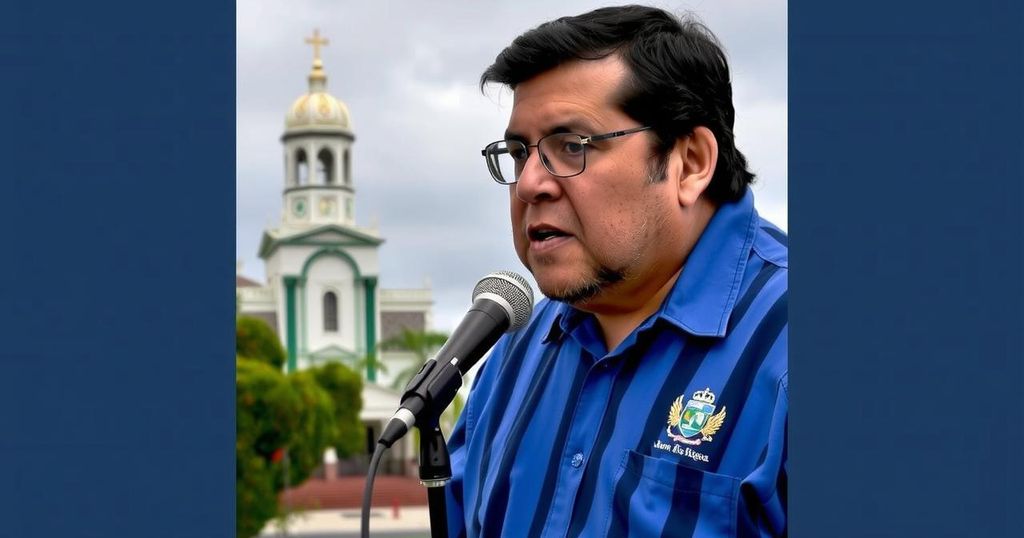Nicaragua’s Ortega Regime Intensifies Crackdown on Religious Institutions
The Nicaraguan government has intensified its crackdown on religious organizations, closing over 1,500 NGOs and imposing taxation on churches. Critics view these moves as efforts to financially undermine the Church, which opposes the Ortega regime. Notable figures have been detained and forced into exile as tensions rise. Recent comments from Pope Francis emphasize growing concerns over the situation in Nicaragua.
In an ongoing effort to diminish the influence of the Church, the Nicaraguan government has enacted measures that critics describe as a financial assault on religious institutions. Under the regime of President Daniel Ortega and Vice President Rosario Murillo, over 1,500 nonprofits and civic organizations have been dissolved, with claims that they failed to submit financial reports. This crackdown disproportionately affects various Christian denominations, particularly the Catholic Church, which has been an anchor of opposition to the government. The decree issued on August 19, 2023, stipulated that all religious organizations must disclose their income and adhere to the new taxation law that removes previous tax exemptions. Such measures are perceived as tactics meant to ‘financially suffocate’ these institutions, particularly as the Ortega administration has previously targeted church-related NGOs by freezing their bank accounts. The Catholic Diocese of Granada’s Caritas and its associated schools are among the entities caught in this wave of repression. The governmental takeover of educational institutions has left many religious figures distressed as they prepare to abandon their century-old contributions to education in the region. Notably, two priests were forced into exile after their detention, further exemplifying the regime’s hostility towards the clergy. Pope Francis has expressed concern for the situation, urging the Nicaraguan people to maintain hope amidst their trials. Critics, including religious leaders and political analysts, assert that these actions are calculated to eliminate dissent and consolidate the regime’s power. Father José María Tojeira remarked that the Ortega government aims to “destroy” religious institutions to impose a singular ideological narrative. Political analyst Eliseo Núñez also highlighted how the regime’s policies seek to impose oppressive regulations that would effectively cripple the Church’s financial independence. In summary, the Nicaraguan government’s recent measures against religious organizations reflect a broader strategy to neutralize opposition and control the narrative within the country, drawing condemnation from various sectors, including international religious leaders.
The context of the Nicaraguan government’s actions against religious institutions can be traced back to its increasing authoritarian measures since 2018 when many NGOs were closed. The government views the Church as a formidable opponent, an entity that garners support for political dissent. Over the years, Ortega’s administration has intensified its campaign against perceived enemies, particularly targeting the clergy and civic organizations affiliated with the Church. The new decree aligns with this trend, posing a direct challenge to the Church’s autonomy and ability to function effectively.
In conclusion, the actions taken by the Nicaraguan government against the Church and various civic organizations signal a troubling escalation in its campaign to stifle dissent and control societal narratives. The required financial disclosures and tax impositions represent an attempt to weaken the Church economically and structurally. As these developments unfold, international leaders and religious figures continue to voice their concerns, highlighting the risk of further oppression in Nicaragua.
Original Source: cruxnow.com




Post Comment